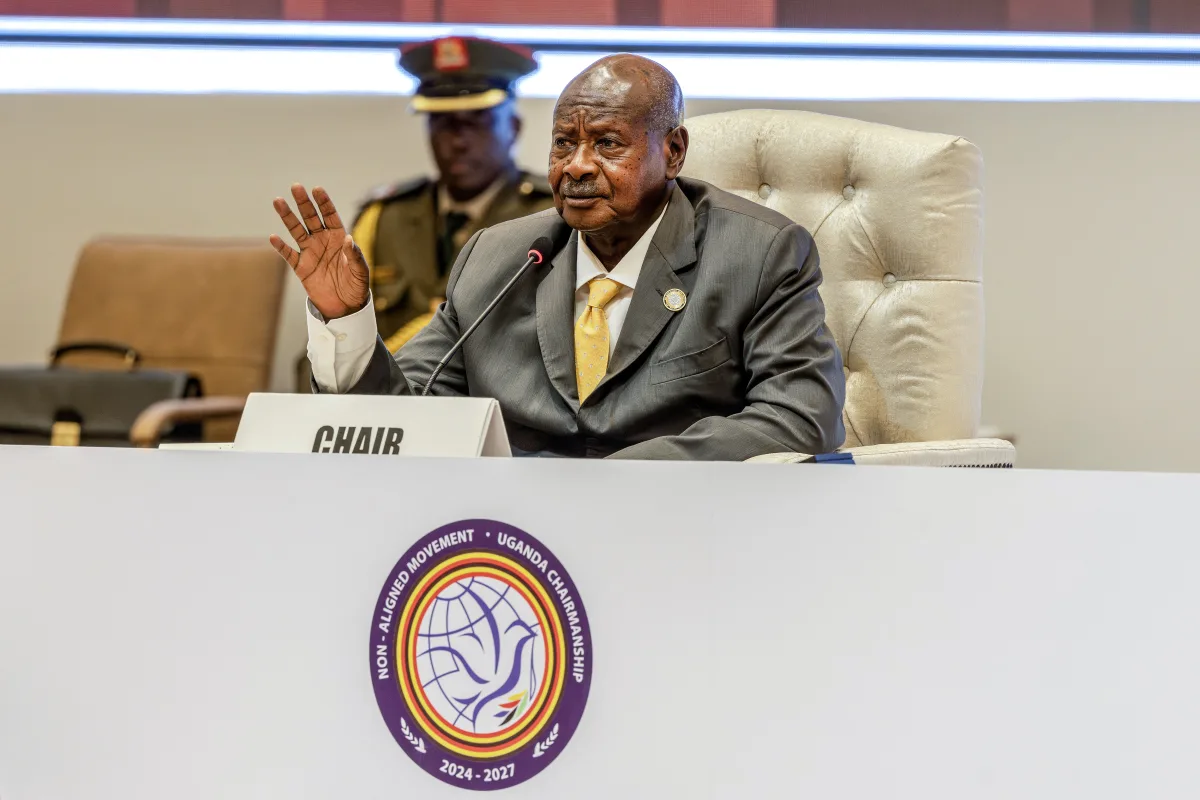Ugandan President Yoweri Museveni apologised for the expulsion of more than 50,000 Indians under former leader Idi Amin, in a move which analysts say could reflect an intention to boost economic and diplomatic ties with a rising India.
In early August 1972, Amin ordered the expulsion of the country’s Indian minority, giving them 90 days to leave the country. Speaking at a meeting of the Non-Aligned Movement (NAM) in Kampala in January, Museveni made a rare statement of contrition for the forced exodus.
“The NAM countries also sometimes make mistakes like here in Uganda. Uganda was moving very well in the 1960s and then we had a man called Idi Amin,” Museveni said.
“He came and took over the government. We decided to fight him. But in the very short time he expelled our Asians – especially those from India and Pakistan – who had come from Asia and settled here,” he added.
Museveni also hailed the economic contribution of the approximately 35,000 Indians that have since returned to Uganda.
“I was asking people how many factories have been built by our Indian returnees,” Museveni said. “They told me about the 900 factories that they had built since they came back.”
Harsh Pant, director of the Strategic Studies Programme at the Observer Research Foundation in New Delhi, says the apology reflects “a recognition of the reality on the ground for domestic economic reasons.”
“There is a small population of Indians in Uganda, but they make up a very large component of the Ugandan economy,” Pant tells African Business.
Particularly with India now the second largest source of foreign direct investment in Uganda, Pant adds that “Museveni is reflecting a sentiment that seems to have grown in the last few years that India is perhaps a more credible partners than many other countries.”
Looking ahead, Pant believes that the closer political and economic ties between Kampala and New Delhi could encourage Indian businesses to consider increasing their exposure to Uganda and Africa more widely.
“This is a good opportunity for India to expand their economic footprint in Africa, and certainly a country like Uganda will be very high up the list because of the history of Indian engagement,” he says.
“India is increasingly looking at Africa as a continent of opportunities,” Pant adds. “I think there has long been a reluctance on the part of the Indian private sector to think of Africa as a long-term investment project, but that is changing now, with Africa itself also changing.”
Shobhana Shankar, professor of African and global history at Stony Brook University in New York State, tells African Business that this rare expression of contrition “is tied not so much to the past as it is to the present and to global politics.”
She notes that, as well as apologising for Uganda’s past treatment of the Indian diaspora, Museveni also condemned Western powers for trying to enforce its values on the Global South. Museveni is at odds with the United States over Uganda’s harsh crackdown on gay rights.
“You should not have the audacity to impose on the society you live in, let alone the world, your narrow uni-ideological orientation,” Museveni argued at the NAM summit.
“Museveni knows that in Eastern Africa and for Uganda specifically, economic relationships with India and other countries outside the West are significant and can be made more significant,” Shankar adds.
“The collective anti-Western ethos is always handy as a unifier in postcolonial nations, especially in fora such as NAM. Museveni’s remarks – about both the West and Uganda-India relations, which should be taken together – appeal to India under Modi, which has experienced its own conflicts with the West.”
Want to continue reading? Subscribe today.
You've read all your free articles for this month! Subscribe now to enjoy full access to our content.
Digital Monthly
£8.00 / month
Receive full unlimited access to our articles, opinions, podcasts and more.
Digital Yearly
£70.00 / year
Our best value offer - save £26 and gain access to all of our digital content for an entire year!
 Sign in with Google
Sign in with Google 



